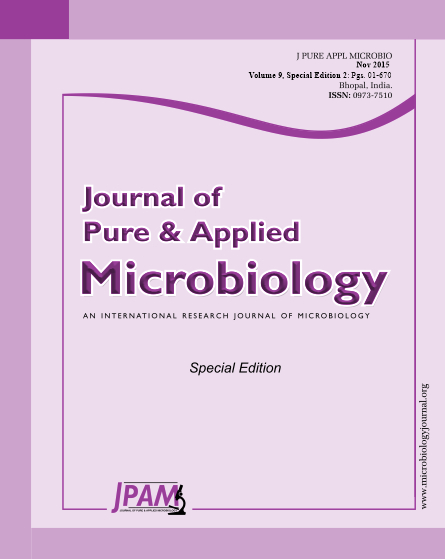Vermicomposting is a well known technology to convert various types of wastes into nutrient rich fertilizer. Enzymes play key role in transformation of nutrients during vermicomposting. Present study is an attempt to find out activities of b- glucosidase, amylase, acid and alkaline phosphatase and urease at 0, 30, 60 and 90 days of vermicomposting of Brassica juncea cake and buffalo dung. Four treatments were used in the experiment with three replications in Completely Randomized Block Design. Treatments were- Buffalo dung + Eisenia foetida (Control); Buffalo dung + Brassica juncea cake (T1); Buffalo dung + Brassica juncea cake + Eisenia foetida (T2) and Brassica juncea cake + Eisenia foetida (T3). Results show that activities of all the enzymes increases with time except urease activity which decreases with composting time. Effect of treatments was found significant at 5% level of significance for all the enzymes.
B- glucosidase, amylase, acid and alkaline phosphatase and urease
© The Author(s) 2015. Open Access. This article is distributed under the terms of the Creative Commons Attribution 4.0 International License which permits unrestricted use, sharing, distribution, and reproduction in any medium, provided you give appropriate credit to the original author(s) and the source, provide a link to the Creative Commons license, and indicate if changes were made.


